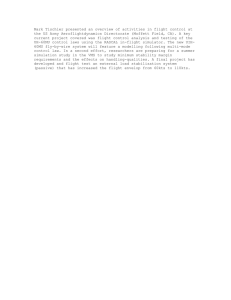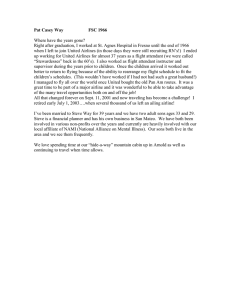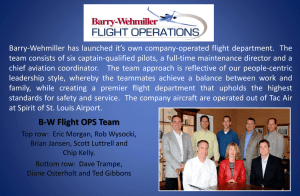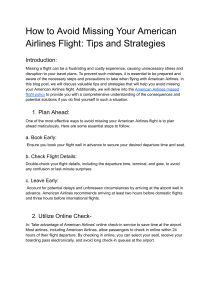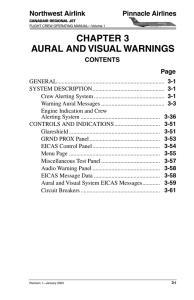Nowhere to Run for Air Safety • Worldwide Safety Data
advertisement
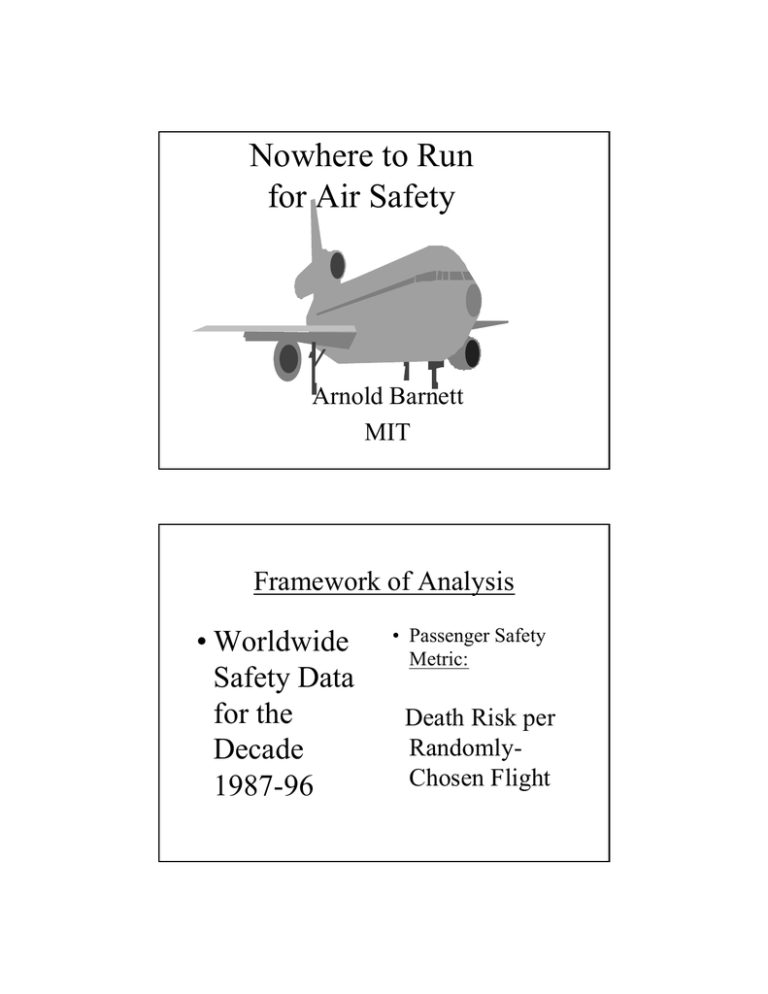
Nowhere to Run for Air Safety Arnold Barnett MIT Framework of Analysis • Worldwide Safety Data for the Decade 1987-96 • Passenger Safety Metric: Death Risk per RandomlyChosen Flight General Point: When two airlines fly a route nonstop, very rarely is there a reason related to safety to prefer one to another. US Domestic Trunklines Death Risk per Flight, 1987-96: 1 in 7 million Airline Number of Domestic Full-Crash Equivalents Number of Flights(Millions) American Continental Delta Northwest TWA United US Air 0 0.32 0.16 1.21 0 1.40 3.53 7.2 4.5 8.5 4.9 2.7 6.5 8.6 TOTAL 6.63 44.7 BUT: Had fatal crashes been randomly distributed among the domestic trunklines, the chances are 11% that the biggest “loser” would have suffered as lopsided a share of crash-equivalents as US Air actually did. Death Risk per Flight on Three Kinds of US Domestic Jet Services, 1987-96 Trunkline 1 in 7m Established Regional 0 New Entrants 1 in 3m BUT: These differences are not statistically significant. Based on the fatal-accident rate of the trunklines, the chance was roughly 40% that the new entrants would have suffered a major crash over 1987-96. Death Risk per Flight for Two Kinds of US Air Carriers, 1987-96 Jets 1 in 2 million Commuter Propjets 1 in 7 million This Difference in Mortality Risk IS Statistically Significant. Death Risk Per Scheduled Jet Flight for First and Developing World Carriers, 1987-96 Domestic First-World Developing World 1 in 8m 1 in 500,000 International 1 in 3m 1 in 400,000 But does this disparity mean that, given a choice, we should fly First-World airlines rather than Developing World ones? TABLE 6: Death Risk Per Scheduled Jet Flight Between The First World and The Developing World, For Two Groups Of Airlines and 1987-96: Carrier Group Full-Crash Equivalents Estimated Number of Flights (millions) Death Risk per Flight First-World 4.03 2.5 1 in 600,000 Developing World 4.98 3 1 in 600,000 BUT: Commuter propjets and jets generally fly on different routes. OVERALL MESSAGE: Don’t think twice; it’s all right.
